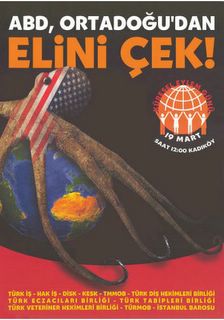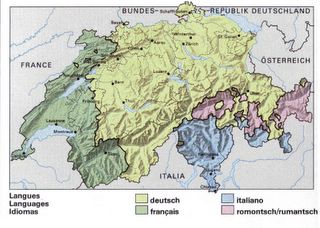The anthem I'll still stand up for is
God save the Queen. It has dumb words, ghastly sentiments and a poor tune, and if you Google for it you'll get the most extraordinary list of parodies, some of them pretty harsh, long before you get to the thing itself.
The verse below doesn't get sung anymore, but it catches the original spirit, which was one of fear of a French and Scottish Jacobite invasion in 1745. French support never came. The Jacobites marched south, faltered, fell back to Scotland and were crushed by Cumberland at Culloden Moor. Charles Stuart fled, and soon afterwards, speaking Gaelic was made a hanging offense in Scotland and the highland clearances began.
Lord grant that Marshal WadeMay by thy mighty aidVictory bring.May he sedition hush,And like a torrent rush,Rebellious Scots to crush.God save the Queen!There are surprisingly fine sentiments at the beginning though.
Not in this land alone,
But be God's mercies known,
From shore to shore!
Lord make the nations see,
That men should brothers be,
And form one family,
The wide world ov'er.I find it typical that the
British Government's site only has a fairly deeply buried external link to the anthem, and that the link leads to the site devoted to
our Head of State. And I take pride in the fact that British traditions are maintained: there is no 'authorised' version of our national anthem. I wonder how many other countries can say that?
An anthem that epitomises an equivalent fear of invasion, but is based on popular mobilisation, is
this one, the song of resistance originally composed when the rulers of Austria and Prussia joined forces to attack the French revolution and restore the King's privileges. The "Chant de Guerre pour l'armée du Rhin" was soon afterwards adopted by the Fédérés marseillais, a volunteer batallion from the south, who on their way to the battlefields played a key role in the assault on the palace of the Tuileries that finally broke royal power. The song became the national anthem in 1795, was banned under Napoleon, resurfaced in 1830 and 1848, and finally regained its status in 1879.

The fact that the version here, excellent and by a major star, is made available free as an MP3 by the French authorities, says something about the contrast between the two countries attitudes to promotion of a national image. It is difficult to imagine even the
Situationists, for all their talk of tearing down Notre Dame, successfully taking the piss out of the
Marseillaise, as
Chumbawamba and the Pistols did with
God Save the Queen. It's more difficult to subvert. But there was an amusing
parody published in 1792. And what do you know - it's all about food.
"A table, citoyens!" Do good wherever you can, love freedom above everything, uphold truth even before the throne.
Do good wherever you can, love freedom above everything, uphold truth even before the throne.Obviously I'm fond of
this one. An excellent choice, since
Beethoven was an intense advocate of democracy, apparently even in his later years when his commitments ceased to be obvious. He was a great admirer of Bonaparte and the revolution, but when
in May 1804 Napoleon declared himself emperor. Ferdinand Ries, Beethoven's pupil at the time, claims to have been the first to give Beethoven the news, upon which he flew into a rage declaring "So he too is nothing more than an ordinary man. Now he will also trample all human rights underfoot, and only pander to his ambition; he will place himself above everyone else and become a tyrant!" He then ripped up the title page upon which he had written the dedication "Buonaparte" and produced another giving it the new title Sinfonia Eroica
The passionate idealism explicit in that story is still apparent in the Choral Symphony. Schiller too was a poet of freedom.
And
this one too.

Most translations of it are rubbish, especially the English one. There is no substitute for the original;
"La raison tonne en son cratère". Le genre humain is not the human race, and L'Internationale has to stay something resonant, not the International Union of the equally pedestrian. My favourite phrase is
Ni Dieu, ni César, ni tribun, a reminder that this was an anarchist poem written around the time of the Paris Commune, when Thiers and Bismark sought to reduce an insurgent Paris. A plebs that lastingly dispenses with People's Tribunes may be a chimera and the fact that the song later became the anthem of the CPSU may be depressing but I prefer to remember Louise Michel and enjoy the fact that streets, schools and squares are still named after her and her comrades all over Paris.

Louise Michel
Since it seems as if every heart that beats for liberty has only the right to a little lead, I too demand my share








